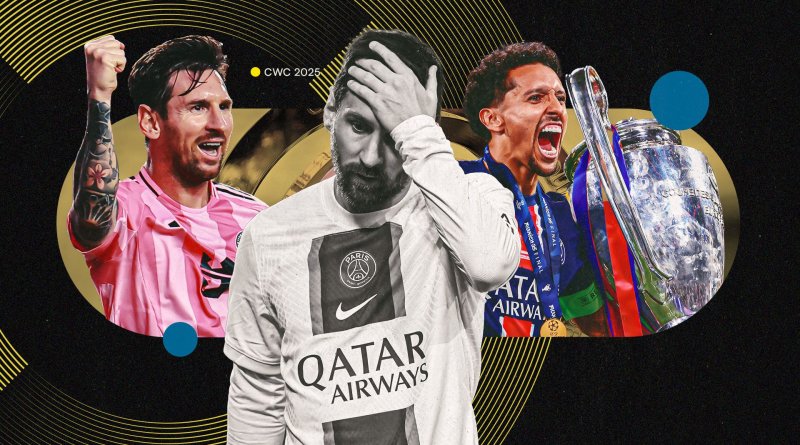Lionel Messi & PSG: A Split That Benefited Everyone
Lionel Messi was always an awkward fit at Paris Saint-Germain, and the two-year experiment ultimately proved that even superstar signings cannot mask a mismatch of culture, tactics and expectation. While the Argentine genius lifted trophies and logged eye-catching numbers, the bond between player, club and supporters never warmed, paving the way for a separation that now looks like a win for every party involved.
How Lionel Messi Arrived in Paris
When Barcelona’s financial implosion forced Lionel Messi to seek a new home in August 2021, PSG appeared the only logical destination. The club could afford his salary, craved a Ballon d’Or magnet and believed the move would push them over the Champions League line. From the outside it sounded perfect: Messi would reunite with Neymar, link up with Kylian Mbappé and spearhead Qatar-backed ambitions. Inside the dressing room, though, concerns grew quickly. Mauricio Pochettino built a pressing scheme that demanded sacrifice off the ball, yet Messi’s 34-year-old legs no longer allowed him to close down full-backs for 90 minutes. The tactical compromise began on day one.
Why PSG Never Clicked With Messi
Lionel Messi brought flashes of magic—21 goals and 26 assists in all competitions—but routine Ligue 1 dominance did little to endear him to a demanding fan base. Parc des Princes ultras wanted Champions League glory and relentless commitment; they received highlights against Clermont and anger when their No. 30 missed a post-title celebration to fulfil Argentina duty. The whistling began, and once boos rain down on a legend, the relationship is doomed. Off the field, marketing campaigns installed Messi’s face on every billboard, yet local supporters felt their identity diluted in favour of global branding.
Inter Miami Offers Messi More Than PSG Did
Freedom is the buzzword in Florida. Inter Miami handed Lionel Messi control over his schedule, a Messi-inspired academy blueprint and even a slice of Apple TV revenue. On grass he roams as he pleases, dictates tempo and no longer hears whistles when he tracks back at jogging pace. The MLS environment values entertainment and growth over instant continental triumphs, perfectly matching a player in the sunset of his career. His arrival spiked attendances, subscription numbers and global interest, turning Inter Miami into the league’s epicentre overnight.
Club World Cup Meeting: Closure or Conflict?
Sunday’s FIFA Club World Cup clash pits PSG against Lionel Messi and Inter Miami in an encounter loaded with subtext yet light on true animosity. Both camps insist the game is “just another fixture,” but narrative sells tickets. For PSG, victory would underline that life after Messi—and potentially after Mbappé—can still sparkle. For Messi, a trademark left-footed curler past Gianluigi Donnarumma would read like a final paragraph to an unfinished Parisian chapter. Either way, the evening feels more like a cordial catch-up between ex-partners than a bitter courtroom showdown.
Financial Footprints of the Divorce
PSG’s accountants might actually smile at the breakup. Messi’s reported €35 million net salary disappeared, easing wage-bill pressure and giving sporting director Luis Campos room to recruit hungry, coachable talent such as Manuel Ugarte and Lucas Hernández. Shirt sales inevitably dipped once the Messi boom faded, yet the club’s commercial reach remains vast thanks to pre-existing global campaigns. Inter Miami, on the other hand, invested heavily but gained a revenue machine. Ticket prices tripled, sponsorship queues lengthened, and Apple TV’s Season Pass subscribers rocketed—all linked directly to Messi’s arrival.
Tactical Lessons Learned
Christophe Galtier and later Luis Enrique inherited a squad built around stars, not systems. Lionel Messi’s presence forced each coach to shoehorn a 4-3-3 that ignored width from full-backs and reduced pressing triggers. Post-Messi, Enrique leans on a 4-2-2-2 that maximises Mbappé’s pace and Ousmane Dembélé’s chaos, while integrating Academy graduates who commit to the press. Inter Miami learned in reverse; they constructed everything around Messi’s gravitational pull, surrounding him with ball-secure midfielders and overlapping runners, proving that building for a superstar can still succeed in the right league context.
Opinion: Time Heals, Football Moves On
Messi’s Paris stay will not top the highlight reel of either his career or PSG’s modern era, yet it served a purpose. The club realised that assembling galácticos is no substitute for chemistry, and Messi found clarity on what he truly values: autonomy, family comfort and a stage that cheers every touch. When the two sides meet in Saudi Arabia, expect respectful nods rather than snarls. The greatest player of all time will jog out, wave to old colleagues and perhaps bend a free kick into the top corner. Then everyone will fly home satisfied, finally convinced the breakup was the right call.
Your global gateway to nonstop football coverage:
Goal Sports News
Share this content:
